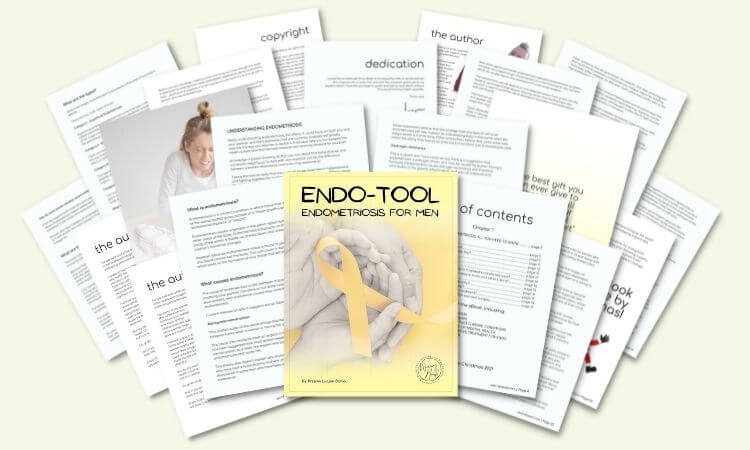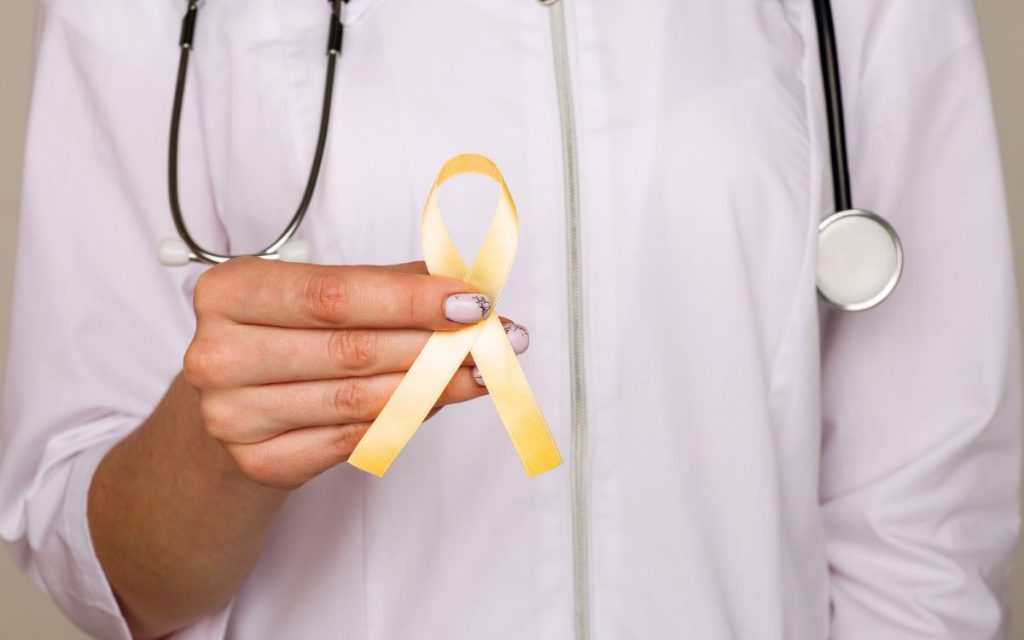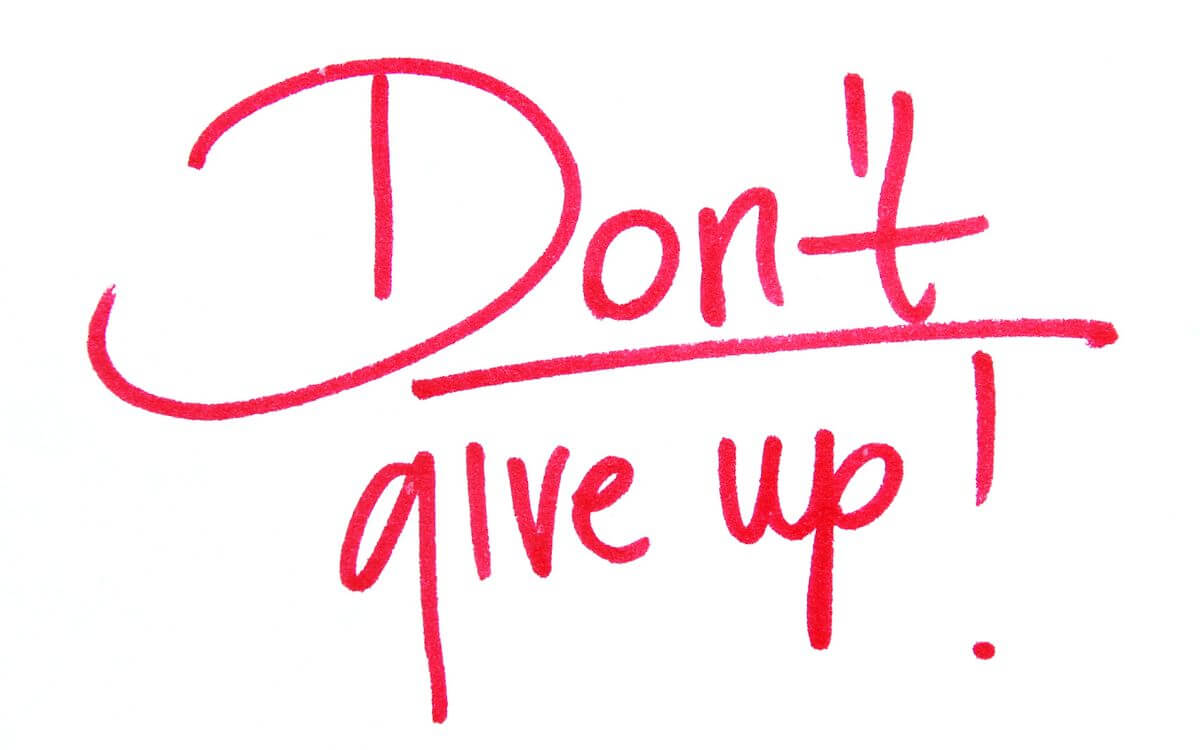Why you should not give up on a woman with endometriosis?
It may be difficult to answer why you should not give up on a woman with endometriosis if you never experienced this condition yourself, and even more difficult if you are a man.
Men simply don’t understand endometriosis.
The reason being is that they have never had to go through chronic pain, fatigue, bloating, and all of the other symptoms that come with this disease. They have never had to worry about their fertility being affected, or about going through menopause early. All they see is a strong and independent woman, who they may not realize is struggling just to get through each day.
Endometriosis affects every aspect of a woman’s life. It can make it difficult to work, exercise, and even have sex. The pain can be so severe that some women are unable to leave their homes. It is a debilitating disease that takes over a woman’s life.
Unfortunately, endometriosis is often ignored or misunderstood by the medical community, especially male doctors.
This is why it is so important for women to advocate for themselves and each other. We need to educate others about this disease, and we need to continue to fight for better treatments and a cure. But men have to involve too!
So, in a nutshell, why should you not give up on a woman with endometriosis?
Because she is fighting a daily battle, and she needs your support. Endometriosis may be an invisible disease, but it is very real and it’s affecting the lives of millions of women all over the world. Your partner may be anxious, depressed, or even suicidal. She needs you!
- Why no one cares about endometriosis?
- Don't give up on her!
- 7 reasons why you should not give up on a woman with endometriosis!
- Endometriosis affects every aspect of a woman's life.
- Endometriosis is a chronic and invisible disease.
- Endometriosis is often misdiagnosed or dismissed by doctors.
- There is no cure for endometriosis.
- Endometriosis can cause a wide range of symptoms.
- Endometriosis can have a significant impact on a woman's quality of life.
- There is no one-size-fits-all solution for endometriosis.
- Conclusion why you should not give up on a woman with endometriosis…
Why no one cares about endometriosis?
There are three main reasons why no one cares about endometriosis:
- Firstly, it is a women’s health issue, and unfortunately, women’s health issues are often downplayed or ignored.
- Secondly, it is a chronic and invisible disease, which means that many people don’t understand its severity of it.
- And lastly, there is no cure for endometriosis, which can make it difficult to raise awareness and funds for research.
Many doctors dismiss the symptoms as being “all in a woman’s head,” or they attribute them to other conditions like irritable bowel syndrome. This lack of understanding can make it difficult for women to get the proper diagnosis and treatment.
Even those who should understand, like gynecologists, often fail to grasp the true impact of endometriosis on a woman’s life.
Because there is no cure for endometriosis, awareness is difficult to raise. Because how can you generate funds and support for a condition that doesn’t have a cure? It’s a vicious cycle.
In my personal opinion, those who sit in high positions in the medical field, such as FDA, should be made up of 50% women. Then, and only then, we would see real change in the way endometriosis is viewed and treated.
Don’t give up on her!
The fact that no one cares about endometriosis should not deter you from supporting your partner or from fighting for a cure.
We need more research, we need more awareness, and most importantly, we need more support. So please, do not give up on a woman with endometriosis. She is fighting a battle every single day.
Endometriosis is a debilitating and chronic condition that affects women of reproductive age. It is characterized by the growth of endometrial-like tissue outside of the uterus and can lead to a wide range of symptoms including pain, fatigue, and infertility.
Despite its prevalence (affecting an estimated 1 in 10 women worldwide), endometriosis is often misdiagnosed or dismissed as a “woman’s problem.”
This can leave women feeling isolated, unsupported, and like they are “just supposed to deal with it.”
If you are in a relationship with a woman who has endometriosis, you should not give up on her!
If you want to learn how to cope with your partner’s illness, how to support her, and manage a relationship with endometriosis, I give away a FREE Chapter of my “Endo-Tool: Endometriosis for Men” eBook! This chapter alone has all the comprehensive medical knowledge, such as:
- What is endometriosis?
- What are the symptoms?
- What causes endometriosis?
- What does endometriosis look like?
- What are the stages?
- What are the types?
- What is adenomyosis and how is it related to endometriosis?
- Why do some women develop severe endo and others don’t?
- Does endometriosis cause infertility?
- How is endometriosis diagnosed?
- Do types and stages affect the treatment?
- Recurrence of endometriosis after excision surgery.
FREE Chapter of “Endo-Tool”!
an Endometriosis for Men book

7 reasons why you should not give up on a woman with endometriosis!
I wanted to give you my 7 reasons why you should never give up on a woman with endometriosis because being a partner (and husband) of a woman who suffers from endometriosis, I gained a decade of personal experience in caring for someone with two chronic conditions.
What I have learned, I shared. I spoke with thousands of women with endometriosis, I’ve done my own surveys, I’ve spoken with medical professionals, I’ve educated myself on endometriosis, and even created a place to spread awareness and educate others on this very blog.
So, below you’ll find my 7 reasons why you should never give up on a woman with endometriosis…
Endometriosis affects every aspect of a woman’s life.
Endometriosis can make it difficult to work, maintain relationships, and take care of day-to-day responsibilities. It often leads to fatigue, depression, anxiety, and like in my wife’s case, suicidal thoughts and attempts.
Endometriosis impacts your partner physically, emotionally, mentally, socially, financially, and sexually.
This simply cannot be ignored!
Endometriosis is a chronic and invisible disease.
Endometriosis is a chronic condition, which means it can last for years or even decades. It is also an invisible disease, which means that many people don’t understand its severity. Even people your partner is supposed to trust like doctors, friends, and even family may not believe her.
The invisibility of endometriosis can make it hard for people to understand why your partner is in so much pain or why she can’t do certain things.
Chronic pain doesn’t show, and chronic fatigue that comes with chronic conditions doesn’t show either. An invisible disease such as endometriosis can simply break the person who suffers from it.

Endometriosis is often misdiagnosed or dismissed by doctors.
Many general practitioners, even gynecologists dismiss the symptoms of endometriosis as being “all in a woman’s head,” or they attribute them to other conditions like irritable bowel syndrome (IBS for short).
This lack of understanding makes it difficult for women to get the proper diagnosis and treatment. The longer it takes to diagnose endometriosis, the more damage is done to the internal organs, and the more pain a woman has to endure.
Endometriosis is a leading cause of infertility.
Endometriosis is one of the leading causes of infertility. It is estimated that up to 50% of women with endometriosis are affected by infertility.
This can be devastating for a woman who wants to start a family. The emotional pain of infertility can be just as intense as the physical pain of endometriosis, so the longer it takes for a woman to be diagnosed, the higher risk of infertility she gets.
There is no cure for endometriosis.
There is no cure for endometriosis, which can make it difficult to raise awareness and funds for research. Because there is no cure, pharmaceutical companies make tons of money on products such as hormones, painkillers, coils, etc…
This is unacceptable, but they use their patients’ pain and suffering to fill their wallets. They treat instead of trying to find the cure. Uneducated people suggest things such as getting pregnant or hysterectomy as a false idea for “curing endometriosis”.
This is silly. Getting pregnant doesn’t cure endometriosis, it simply stops its growth for 9 months, and then continues to grow again. In terms of hysterectomy – it does NOT cure endometriosis!
Because there is no cure, women suffer in silence. If that doesn’t answer why you should never give up on a woman with endometriosis, I have a few more reasons below…
Endometriosis can cause a wide range of symptoms.
Endometriosis can cause pain, fatigue, cramps, bloating, constipation, diarrhea, and heavy periods. Let’s discuss them one by one:
- Pain: The pain caused by endometriosis can be mild to debilitating. It can be a sharp, stabbing pain or a dull, aching pain. The pain can be localized to the pelvis or it can radiate throughout the lower back and abdomen.
- Fatigue: The fatigue caused by endometriosis can be so severe that it interferes with a woman’s ability to work, take care of her family, and carry out day-to-day activities.
- Cramps: The cramps caused by endometriosis can be mild to crippling. They can be accompanied by nausea, vomiting, and diarrhea.
- Bloating: The bloating caused by endometriosis can be so severe that it makes a woman look pregnant.
- Constipation: Constipation caused by endometriosis can be so severe that it leads to bowel obstruction.
- Diarrhea: Diarrhea caused by endometriosis can be watery and frequent.
- Heavy periods: The heavy periods caused by endometriosis can last for days or weeks and lead to anemia.
Endometriosis can have a significant impact on a woman’s quality of life.
Endometriosis can have a major impact on a woman’s quality of life. It can lead to absenteeism from work and makes many women feel guilt and grief, but also like a burden to you as the partner.
The feeling of guilt comes from not being able to do things that you used to do or not being able to work. The grief comes from the loss of what could have been. And the feeling of being a burden comes from not being able to help with things around the house or with childcare.
I think that sums it up…
There is no one-size-fits-all solution for endometriosis.
There is no one-size-fits-all solution for endometriosis. Every woman experiences the condition differently and requires individualized treatment and it can be very hard to find something that would work well for everyone.
This is why a holistic approach is often recommended, which includes both medical and complementary therapies.
To give a few examples of a holistic approach you can look into this source.
FREE Chapter of “Endo-Tool”!
an Endometriosis for Men book

Conclusion why you should not give up on a woman with endometriosis…
To summerise why you should not give up on a woman with endometriosis is because:
- Endometriosis is one of the leading causes of infertility in women.
- There is no cure for endometriosis.
- Endometriosis can have a significant impact on a woman’s quality of life.
- There is no one-size-fits-all solution for endometriosis.
The physical, emotional, and mental toll of endometriosis can be immense. It can cause anxiety and depression, it can interfere with work and social activities, and it can strain relationships. Endometriosis can also lead to financial difficulties due to the high cost of treatment and lost wages from missed work.
Endometriosis is a serious disease that deserves more attention.
If you want to ask anything or add your own opinion on why you should not give up on a woman with endometriosis, please do so in the comment section below.
And remember – sharing is caring!


About Me
Hi, I’m Lucjan! The reason why I decided to create this blog was my beautiful wife, who experienced a lot of pain in life, but also the lack of information about endometriosis and fibromyalgia for men…
